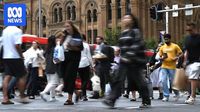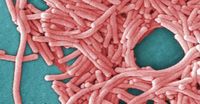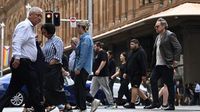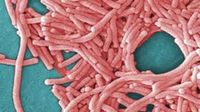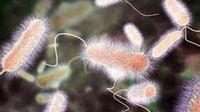NSW Health has issued a public alert for Legionnaires' disease in the Sydney CBD, urging residents and visitors to be vigilant for symptoms following the hospitalization of six individuals who contracted the disease after visiting the area. This warning comes as health officials scramble to identify the source of the outbreak, which has raised concerns among hundreds of thousands who have spent time in the city center over the past three weeks.
Legionnaires' disease, a severe form of pneumonia caused by the bacterium Legionella, is not transmitted from person to person. Instead, it typically arises from inhaling contaminated water particles, often found in cooling systems, air conditioning units, and hot water tanks. Symptoms can develop up to 10 days after exposure and include fever, chills, cough, and shortness of breath. In severe cases, the disease can lead to serious chest infections and even be fatal.
According to Dr. Vicky Sheppeard, director of the South-Eastern Sydney Local Health District Public Health Unit, all six hospitalized patients are not known to one another, indicating that the cases may not be linked. "No single source for the cases has been identified, and it is possible that they are unrelated," she stated. The patients began experiencing symptoms between March 30 and April 4, 2025, after visiting the CBD.
In light of the outbreak, NSW Health is working closely with the City of Sydney to investigate and review maintenance records of cooling towers in the area. Authorities are prioritizing inspections and sampling to trace the source of the infection. Sheppeard emphasized the importance of this effort, noting, "When we see a cluster of new infections like this, we often find that there's a cooling tower that is contaminated with the bacteria. We're actively taking steps to identify that tower and have it cleaned so other people don't become ill."
The health alert has prompted a wider call for awareness among the public. NSW Health has advised anyone who has been in the CBD over the past 10 days to monitor for symptoms of Legionnaires' disease. Those most at risk include elderly individuals, people with underlying lung or other serious health conditions, and smokers. Anyone feeling unwell is encouraged to seek medical advice and can contact healthdirect, a free health service available 24 hours a day, at 1800 022 222.
This recent outbreak in Sydney is not an isolated incident. In August 2024, over 100 people were reported to have contracted Legionnaires' disease after an outbreak linked to cooling towers in Melbourne, which resulted in the deaths of two individuals, including a man in his 60s and a woman in her 90s. Additionally, Sydney experienced its own outbreaks earlier in 2024, with at least seven hospitalizations reported in January and another three cases linked to a nearby outbreak in February.
The fatality rate for Legionnaires' disease is approximately 10 percent, highlighting the seriousness of the situation. While most healthy individuals tend to recover from the disease, those with compromised immune systems or preexisting health conditions may face severe complications.
As investigations continue, health authorities remain on high alert, emphasizing the need for proper maintenance of cooling towers and other potential sources of the bacteria. The public is urged to remain informed and cautious, particularly as warmer weather approaches, which can exacerbate the growth of Legionella bacteria in water systems.
In summary, the emergence of Legionnaires' disease cases in Sydney's CBD serves as a stark reminder of the importance of public health vigilance and the need for proactive measures to prevent outbreaks. With the ongoing investigation and monitoring efforts, health officials aim to safeguard the community and mitigate any potential risks associated with this serious illness.
